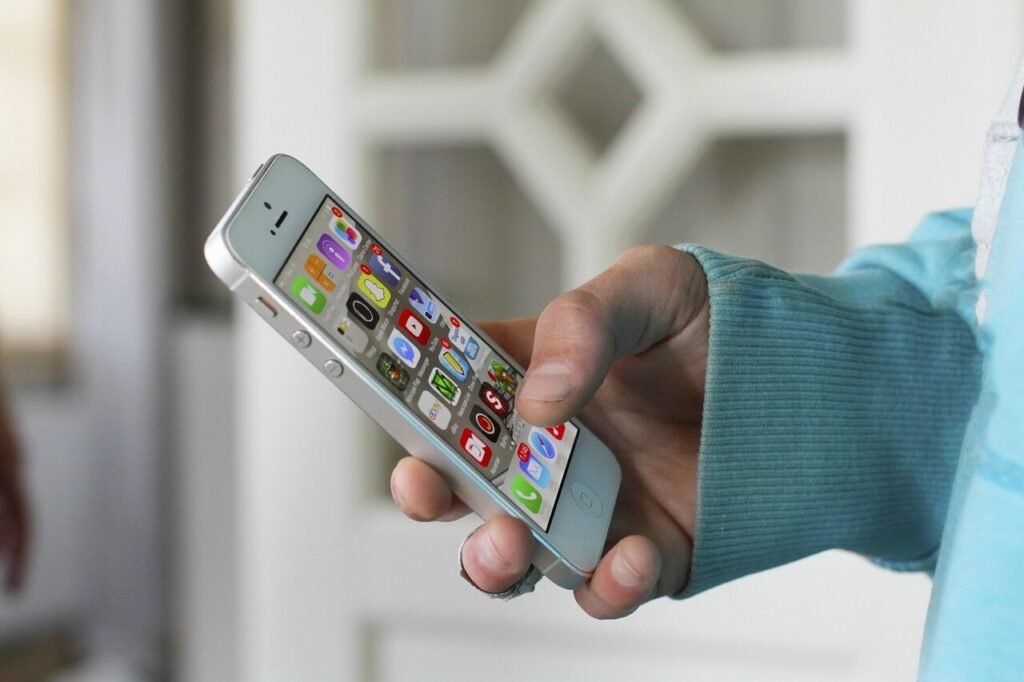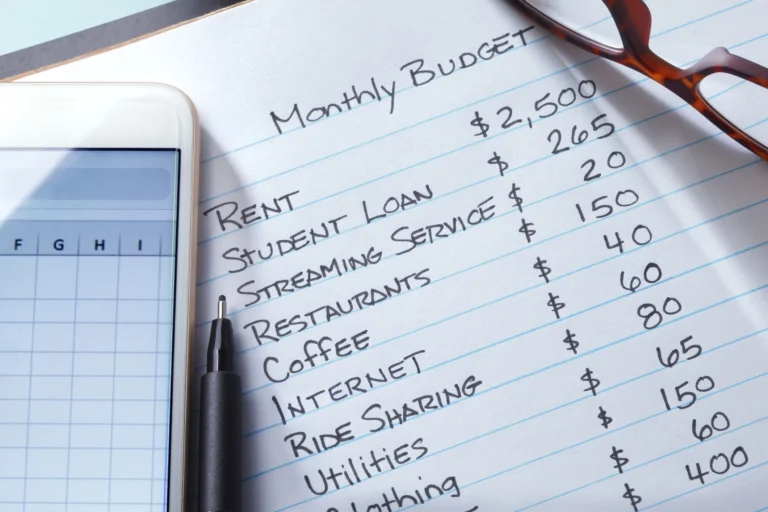Budgeting is one of the most important financial habits you can build — and in 2025, there’s no shortage of apps to help you get started. Whether you want a free, beginner-friendly tool or a more advanced budgeting system, the right app can simplify money management and set you on the path to financial success.
A recent Bankrate survey revealed that more than 56% of Americans cannot cover a $1,000 emergency expense without borrowing. Budgeting apps help address this issue by making financial planning easier and more accessible. With automated tracking, goal-setting features, and real-time insights, these apps allow beginners to finally take control of their money without feeling overwhelmed by spreadsheets or complex financial software.
In this guide, we’ll cover the best budgeting apps for beginners in 2025, compare their features, and help you choose the one that fits your lifestyle. We’ll also include tips for maximizing the benefits of these apps and FAQs to help you get started on the right foot.
Why Budgeting Apps Matter for Beginners

Starting your financial journey can feel overwhelming, but budgeting apps remove the guesswork. Instead of manually tracking receipts or spreadsheets, these tools automatically categorize expenses, show where your money is going, and help you stay on track with savings goals.
Benefits of budgeting apps for beginners:
- Save time with automatic expense tracking
- Visualize spending by category
- Stay accountable with real-time updates
- Build long-term money habits with goal tracking
Quick Comparison: Best Budgeting Apps for Beginners in 2025
| App | Best For | Cost | Key Features |
|---|---|---|---|
| YNAB (You Need a Budget) | Building strong money habits | $14.99/month | Proactive budgeting, real-time syncing, workshops |
| EveryDollar | Simple, goal-driven budgeting | Free (Premium available) | Zero-based budgeting, goal setting, debt payoff tracking |
| PocketGuard | Avoiding overspending | Free (Premium available) | “In My Pocket” feature, savings tracking |
| Goodbudget | Envelope method budgeting | Free (Paid plan available) | Digital envelopes, shared budgeting for families |
| Monarch Money | Long-term financial planning | $14.99/month | Goal setting, investment tracking, family features |
1. YNAB (You Need a Budget)
Best for: Beginners who want to build strong money habits
YNAB is one of the most popular budgeting apps for beginners who want to take control of their money. It uses the “zero-based budgeting” method, meaning every dollar is assigned a purpose — whether it’s for bills, savings, or fun. While there’s a learning curve, YNAB offers helpful tutorials and a supportive community. It’s particularly valuable for those who want to move beyond basic expense tracking and truly learn how to manage their money effectively.
Ideal Users: Freelancers, young professionals, or anyone wanting a structured system.
Pros: Excellent for building long-term habits, strong educational resources, real-time syncing
Cons: Higher monthly cost compared to competitors
2. EveryDollar
Best for: Beginners who want a simple, goal-driven solution
EveryDollar, created by Ramsey Solutions, is designed for beginners who want to budget with intention. Using a zero-based budgeting approach, it encourages you to plan your income, track expenses, and assign every dollar a purpose. It’s beginner-friendly, with both free and premium versions available. The premium version allows you to link bank accounts for automated tracking, while the free plan is ideal for those who don’t mind manual entry.
Ideal Users: Beginners who want to pay off debt or save toward specific goals.
Pros: Easy to use, based on zero-based budgeting, great for debt payoff goals
Cons: Free version is limited, premium requires a subscription
3. PocketGuard
Best for: Beginners who want to avoid overspending
If you tend to overspend, PocketGuard is your best friend. Its standout feature, In My Pocket, shows you exactly how much money you can safely spend after bills, necessities, and savings contributions are accounted for. The app is especially helpful for students or anyone living on a tight budget.
Ideal Users: College students, young professionals, or anyone who wants to prevent impulse spending.
Pros: User-friendly, keeps overspending in check, free basic version
Cons: Limited advanced features compared to premium apps
4. Goodbudget
Best for: Beginners who like the envelope method
Goodbudget brings the traditional envelope system into the digital age. Instead of stuffing cash into envelopes, you assign your income into digital categories. It’s especially useful for couples or families who want to share a budget and coordinate spending.
Ideal Users: Families, couples, and people who prefer highly structured spending categories.
Pros: Great for shared budgeting, free version available, simple to use
Cons: Requires more manual input compared to automated apps
5. Monarch Money
Best for: Beginners who want long-term financial planning
Monarch Money is quickly becoming a favorite in 2025 for people who want more than just budgeting. In addition to expense tracking, it offers goal-setting tools, net worth tracking, and even family collaboration features. Monarch is designed not just to track expenses but to help you see your entire financial picture, making it a great option for those planning for bigger milestones like homeownership or retirement.
Ideal Users: Families, long-term planners, or people interested in both budgeting and wealth management.
Pros: Clean interface, excellent for long-term planning, supports family budgets
Cons: Paid subscription required
Other Great Budgeting Apps Worth Considering

While the apps above are the most popular for beginners, there are a few other strong contenders in 2025:
- Simplifi by Quicken – A modern app that tracks cash flow and helps forecast future spending. Great for beginners who want simple automation.
- Honeydue – Designed for couples, Honeydue allows shared expense tracking and financial transparency.
- Empower (formerly Personal Capital) – Offers both budgeting and investment tracking, making it a good option for beginners who also want to monitor their wealth.
Adding these apps to your research list ensures you’ll find one that perfectly fits your lifestyle and goals.
How to Choose the Right Budgeting App

When choosing the best budgeting app for beginners, think about:
- Identify Your Financial Goal: Are you trying to pay off debt, save for an emergency fund, or track everyday expenses?
- Pick Your Budgeting Style: Do you like structured zero-based budgeting (YNAB, EveryDollar) or a simpler automated approach (PocketGuard, Simplifi)?
- Test Free Versions First: Many apps have free versions or trials, so experiment before committing to a subscription.
- Avoid App-Hopping: Choose one app and stick with it for at least 90 days to develop consistent habits.
Tips for Getting the Most Out of Your Budgeting App
- Link All Your Accounts: This ensures accurate data tracking.
- Set Reminders: Schedule weekly check-ins to review spending.
- Start Small: Begin with just 2–3 spending categories, then expand.
- Use Goals: Create savings or debt payoff goals to stay motivated.
- Review Monthly: Adjust your budget categories every month as your financial situation changes.
These strategies will help you go beyond downloading the app and actually use it effectively.
Final Thoughts

Budgeting apps in 2025 make it easier than ever to control your spending, grow your savings, and reach your financial goals. If you want something simple and goal-driven, start with EveryDollar or PocketGuard. If you’re ready to take budgeting seriously, YNAB and Monarch Money provide powerful tools to build long-term financial stability. And if you love the envelope method, Goodbudget is your best bet.
The key is to pick one app and stick with it. Consistency matters more than the app itself. By tracking your spending, setting goals, and reviewing your budget regularly, you’ll build habits that set you up for financial success in 2025 and beyond.
FAQs About Budgeting Apps for Beginners
1. What is the easiest budgeting app for beginners in 2025?
EveryDollar and PocketGuard are the easiest for beginners because they require little setup and help you budget with confidence.
2. Are budgeting apps safe?
Yes. Most budgeting apps use bank-level encryption and two-factor authentication to keep your data secure.
3. Do I need to pay for a budgeting app?
Not necessarily. Free apps like PocketGuard, Goodbudget, and EveryDollar are great for starting out, but paid apps like YNAB and Monarch Money offer more advanced tools.
4. Which budgeting app is best for couples or families?
Goodbudget, Honeydue, and Monarch Money are excellent for shared budgeting.
5. Are paid budgeting apps worth the money?
If you’re serious about developing long-term money habits or need advanced features like investment tracking, paid apps like YNAB and Monarch Money can be well worth the cost.
6. What’s the difference between zero-based and envelope budgeting?
Zero-based budgeting (used by YNAB and EveryDollar) assigns every dollar a job, ensuring nothing is left unallocated. Envelope budgeting (used by Goodbudget) separates money into categories or “envelopes” for specific purposes.
7. Which app is best for students?
PocketGuard is ideal for students thanks to its focus on preventing overspending and tracking everyday expenses.





[…] free budgeting apps like Mint, YNAB, or EveryDollar to automate expense […]
[…] Your Current SpendingUse a budgeting app (like YNAB or Empower) or simply check your bank statements to see where your money is […]